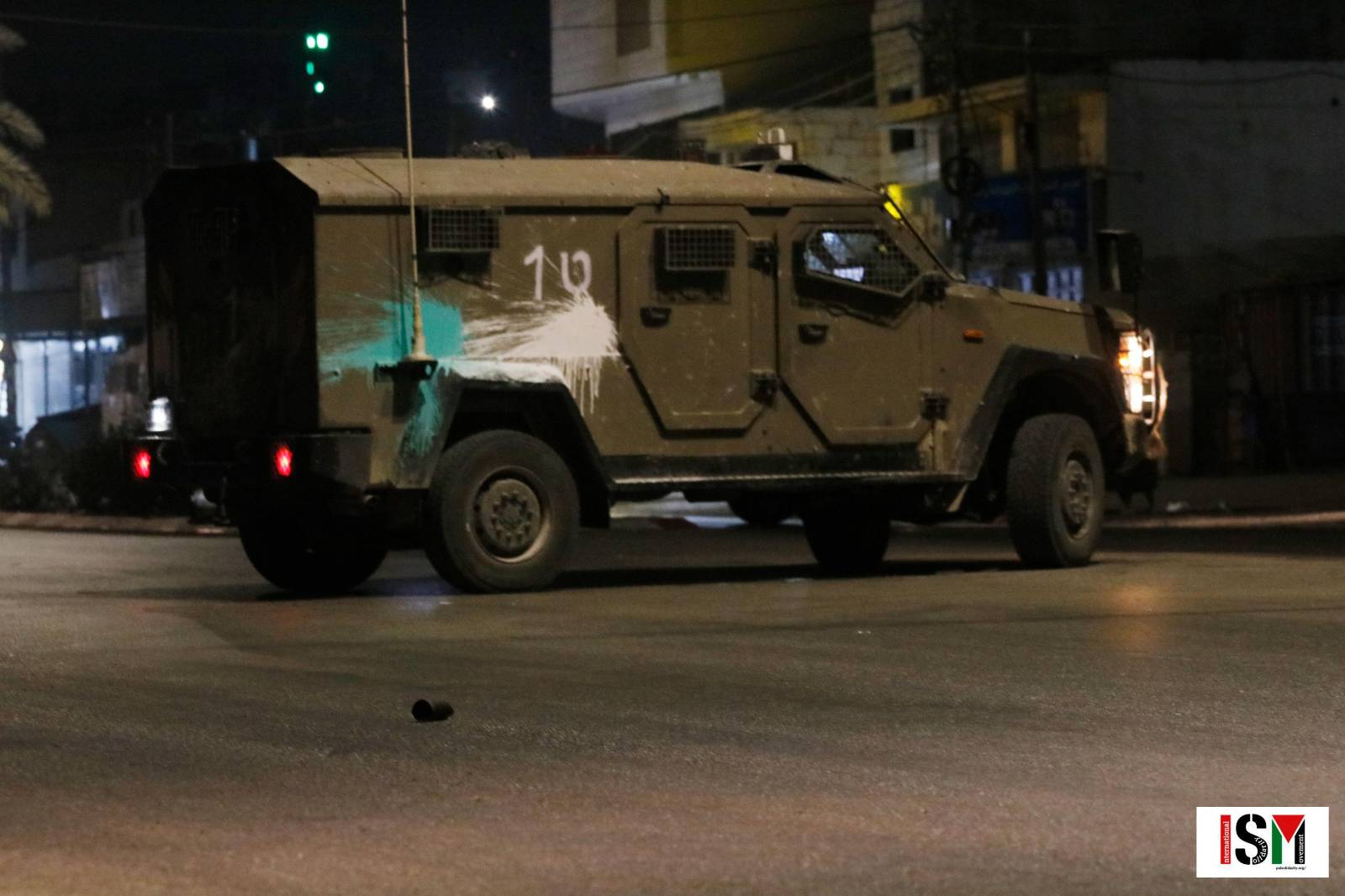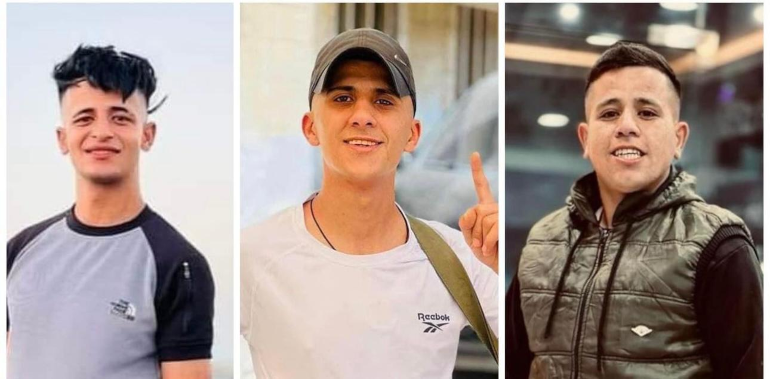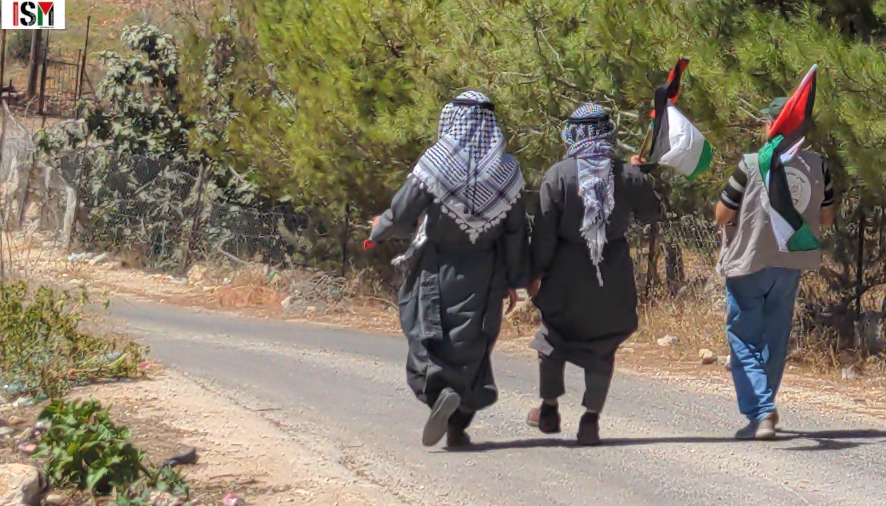-
Destruction after destruction in Nur Shams camp
Photos and text by Diana Khwaelid for ISM 20 days after the storming and the recent massacre in Nur Shams refugee camp (in Tulkarem), the Israeli occupation launched a military campaign into the camp again. On the night of Saturday, 24-9-2023, at 12:00 AM, dozens of Israeli military vehicles, two bulldozers and two D9-type military […]
-
Six Palestinian martyrs in less than 24 hours
Jenin – 20-9-2023 By Diana Khwaelid An Israeli Special Force unit stormed the Jenin camp in the northern West Bank on Tuesday evening, 19-9-2023, around 20:30 to besiege a Palestinian house. Palestinian fighters were inside the house, which belongs to the Abu Al-Baha family. Dozens of Israeli military vehicles stormed the camp, and Palestinian fighters […]
-
Palestinians in Qaryut reassert their right to visit their spring, despite IOF violence
On Friday 15th of September the people of Qaryut – a village between Nablus and Ramallah – held a demonstration reasserting their rights over the village spring. The village is close to the illegal settlements of Eli and Shilo, and every Friday settlers come to wash in the spring. This is a clear act of […]
Action Alert An Nabi Saleh Apartheid Wall Arrests BDS Bethlehem Bil'in Cast Lead Demonstration Denial of Entry Ethnic Cleansing Farmers Gaza Global Actions Hebron House Demolition International law Israeli Army Jerusalem Live Ammunition Nablus Ni'lin Prisoner Ramallah Rubber-coated steel bullets Settlement Settlers Settler violence Tear-Gas Canister Video



